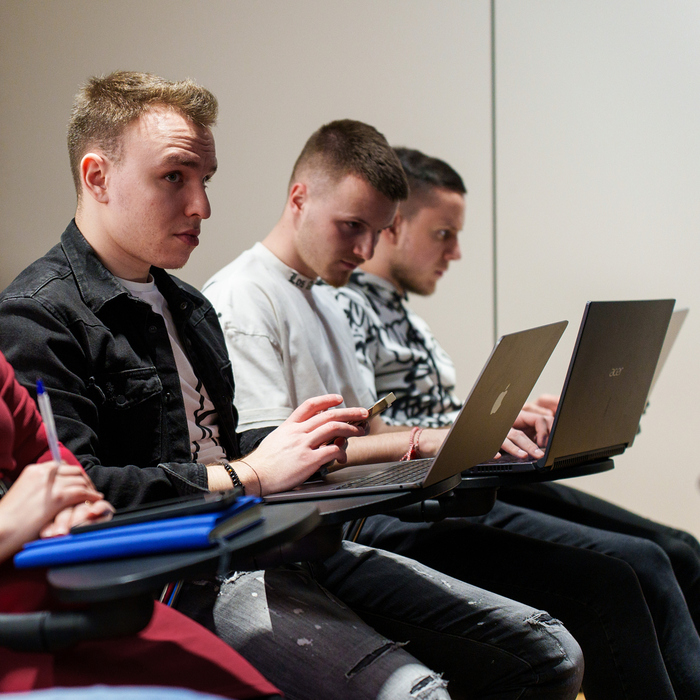The Psychology of Music: understanding why we listen and how it affects us
Психология на музиката: разбиране защо я слушаме и как тя ни влияе
Психология на музиката: разбиране защо я слушаме и как тя ни влияе
Корпус 2, зала 607
Организатор:
Департамент „Когнитивна наука и психология“
Лектор:
Thomas M. Lennie (Department of Philosophy and Psychology, American University in Bulgaria, AUBG)
Модератор:
Доц. д-р Феликс Диаз
Участници:
Преподаватели, студенти и алумни на департамент „Когнитивна наука и психология“
Music psychology investigates how humans perceive, process, and are affected by music, drawing on methods and theories from psychology, neuroscience, and the cognitive sciences. In this lecture, I will provide an introduction to the field, outlining its central questions, current research directions and applications. Topics will include the psychology of perception and memory in music, the role of music in emotion and social bonding, and applications in health and education. Finally, we will explore how listener goals and contextual factors shape emotional responses to music. This talk will illustrate how music psychology not only advances our understanding of the human mind but also connects with broader questions in cognitive science and novel opportunities for cross-disciplinary research.
Dr. Thomas M. Lennie is a psychologist specializing in music cognition, currently serving as Assistant Professor of Psychology at the American University in Bulgaria (AUBG) and head of AUBG's psychology lab. He earned his Ph.D. in Psychology from Durham University (UK) in 2023. His work bridges experimental psychology, cognitive science, and the study of music, exploring how people perceive, experience, and are influenced by sound.
Dr. Lennie's research focuses on how listener goals and situational context shape emotional responses to music, with particular interest in how music regulates emotion, fosters social connection, and influences decision-making. He has received several grants and awards for his work, including best conference paper (ICMPC16–ESCOM2021), recognition for science communication (Global Citizenship Programme, 2020 & 2021), symposium funding (Marie Curie, 2019; DCAD, 2020), experimental research funding (AHRC, 2019 & 2020), and travel grants (ICMPC15–ESCOM10).

